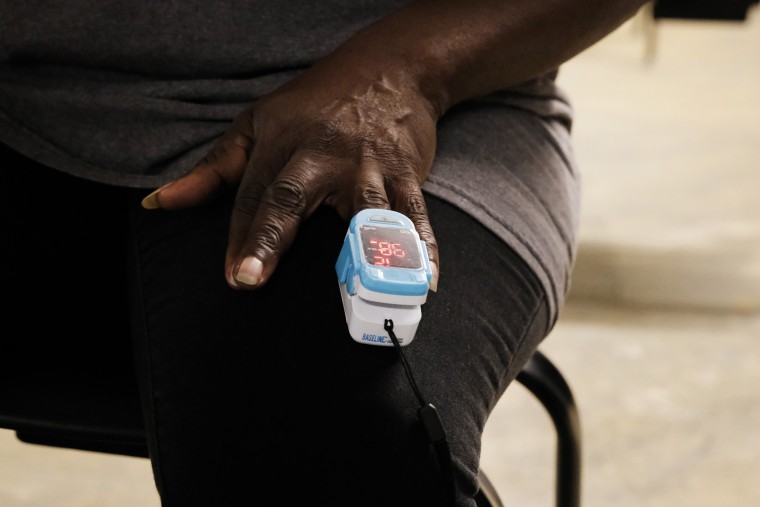Black and Latino patients experienced significant delays in obtaining lifesaving Covid-19 treatments because of a popular medical device that inaccurately reads darker skin tones, according to a study released last week in JAMA Internal Medicine.
The report found that pulse oximeters, devices that clip onto fingertips and read oxygen levels, are more likely to produce inaccurate results for Black, Latino and Asian Americans than for white patients. The devices can make patients of color appear healthier than they actually are, researchers said.
“Not only less accurate but, in particular, more optimistic,” said a co-lead author of the study, Dr. Tianshi David Wu, an assistant professor of pulmonary medicine at Baylor College of Medicine in Texas. “In this study we found that minority patients appeared healthier than they really were based on this bias in pulse oximetry.”
The report indicated that the inaccuracies make it increasingly difficult for patients of color to get appropriate Covid-19 care and that they can lead to worse outcomes. The device detects a person’s oxygen levels by the way light is absorbed by skin. According to previous studies, darker skin, and even dark nail polish, can throw off the reading.
Black and Latino people continue to represent an outsize proportion of Covid-19 deaths.
Another co-lead author, Dr. Ashraf Fawzy, a professor of medicine at John Hopkins University School of Medicine in Baltimore, said patients of color are “having their need for treatment recognized at a later time than white patients.”
The medical device has long faced criticism for racial bias, with reports of disparities dating to the 1990s. A similar report published in 2020 also found that the device can give Black people false readings more often than white patients.
Researchers advised improving the device’s technology of to fix the issue. Another alternative, they said, is an arterial blood gas, which they described as an invasive and painful test option that checks oxygen saturation levels through a blood test from an artery.
“We don’t think the issue is that the technology can’t do it,” Wu said. “We think the issue is that there is no will within the industry to address this.
“The unfortunate effect of that is that the pulse oxygen saturation is considered a vital sign, and it’s nowhere more important than in Covid, where the severity of Covid is determined and defined based on what someone’s oxygen saturation is,” he added.
Researchers said it is a critical device in the medical system that requires change.
“We definitely can’t do away with it,” Fawzy said, adding that the industry “needs to be aware of the issue until it can be fixed.”

